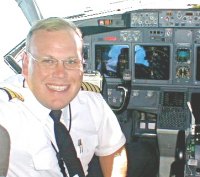This Forum is a place for Piper Comanche pilots to communicate and discuss technical issues
If you join or reset a password, please check your Spam Email box for emails from Admin at ComancheTechTalk.com
Please put your questions on the forum as well so everyone can read and respond. Someone else might be having similar questions.
All questions or topics on the Forums automatically get sent to the Tech team as well.
Is this O-360 too old??
I am in the market for a Comanche 180. I found one that I like however, it was last overhauled in 1984 and only has 410SMOH. According to the seller the engine has chrome cylinders and compressions are all in the 70s. Its not seeping oil etc....
I understand no one can guarantee the reliability of an engine, however, is an engine this old more at risk of catastrophic failure? My main concern is purchasing an aircraft that is going to require an overhaul almost immediately. Any thoughts?
- Warren beckles
- Posts: 5
- Joined: Tue Jan 28, 2014 3:10 am
Re: Is this O-360 too old??
Zach

Zach Grant L1011jock- Technical Advisor
- Posts: 1404
- Joined: Mon Mar 22, 2004 4:35 pm
- Location: Indianapolis KEYE
Re: Is this O-360 too old??
I would say its not been used regularly, only 400 hours in 30 years I think 9 hours in the last 3 years. The owner passed away and now his son is trying to sell it.
Not a lot of 180s on the market.
- Warren beckles
- Posts: 5
- Joined: Tue Jan 28, 2014 3:10 am
Re: Is this O-360 too old??
Welcome to almost Comanche ownership.
Zach is super knowledgeable on 180s - he has one of the very best. Was privileged to get a ride in it.
FWIW, the worst thing we ever did to the Twin was not fly it while we were focused on elder care. I think Lycoming recommends every 2000 hours or 10 years for O/H.
Be sure to get a good pre-buy from a Comanche knowledgeable mechanic. If you post where the 180 is on the Forum, folks can suggest a nearby mechanic.
good luck with your search.
Patricia Jayne (Pat) Keefer ICS 08899
PA-39 #10 Texas

N3322G- ICS member

- Posts: 1911
- Joined: Thu May 08, 2008 1:58 pm
- Location: Fort Worth, Texas area
Re: Is this O-360 too old??
I agree with Zach. Anything you can do to get an actual look inside the engine will be to your advantage. You asked if an engine this old is more likely to have "catastrophic failure." My little opinion is probably no. It is however much more likely (not certain just more likely) to have rust and corrosion. I don't know if you know who Mike Busch is from savvymx.com but I would tend to agree with what he says 99% of the time. TBO is rather a mythical concept. If you think about it, it is somewhat crazy to put an identical TBO on all aircraft engines whether it be hours or calendar limits. Theoretically engines and airframes could be considered "identical" leaving the factory but that is where it ends. Once they are out in the real world, very few live identical lives. Pilot technique, environment, maintenance, frequency of use, all these things impact the longevity of the components, or lack there of. Statistically your engine in question is more likely to be in need of serious maintenance sooner rather than later but by no means guaranteed. I doubt there is any other way to actually say it other than that.
A great example of an old engine that was in good health was referenced in this months Comanche Flyer on the cover article. Unfortunately, I left the magazine at work and can't remember the title but the short of it was that the engine was about 34-35 years old with I think the owner said 1600 TT when he bought it. He then flew it to 1850TT when his need to see the inside of the engine overwhelmed him even though the engine was running perfectly. When he took the engine apart, he found perfection. No sign of any rust or corrosion at all. The difference here is the 1600TT vs. the 400 hours your engine has. He was already paying for a relatively high time engine. You would be paying for a relatively low time engine. This is a much greater financial risk to you. That's the key.
If everything else about the plane in question appears really really good, it might be worth taking a little gamble provided you can get an adequate look inside the engine. If it were me, I would not want to pay for a 400 hour 35 year old engine. I would negotiate as low as possible to get to a number where if I had to overhaul, I wouldn't feel too bad about it. Where has this engine been sitting? If it has been in Florida, that is BAD. If it has been sitting in Tucson, AZ, that is much better. If you do buy the airplane, if you make it through the first 50-100 hours with no metal in the filter or other signs of distress, again in my little opinion, you would be through the "high risk" zone. Generally, rusty engines that have been sitting reveal themselves quickly when they start to get operated again.
Hope this helps!
Ed
P.S. Are you the same Warren in Florida that I spoke to on the phone about N5391P. If so, glad to see you joined the ICS. Good luck in your search!
- Ed Asmus
- Posts: 72
- Joined: Wed Sep 11, 2013 5:02 am


